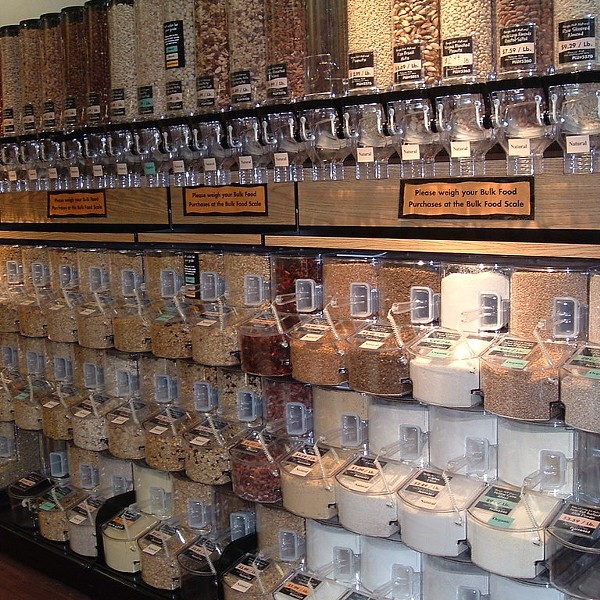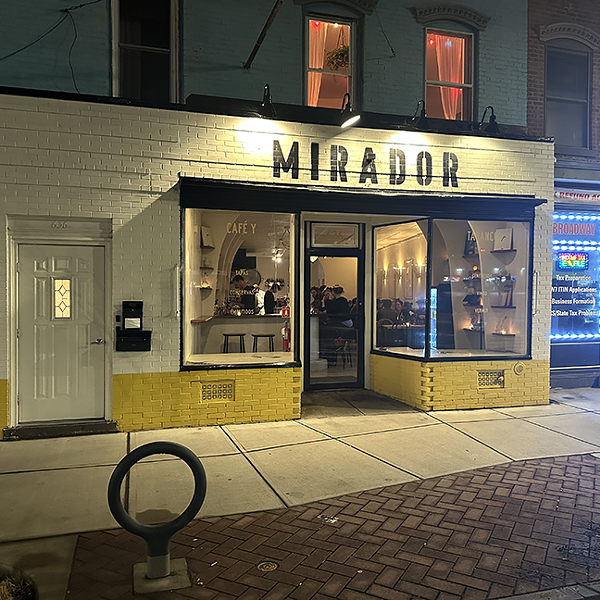When she was six or seven, Jennifer McKinley turned a refrigerator carton into a fruit stand and sold food to her neighbors in Summit, New Jersey. Now, years later, she’s realizing that childhood impulse as a grown-up business in the form of Kingston Natural Foods Market, in the city’s Rondout district, which has its grand opening on June 5th. Growing up watching her father tend their substantial garden and her mother make bread taught McKinley where food comes from. A self-described “simple gal,” she says that their modest means meant that much of their food was the result of their own labor. This connection to food proved to be deep and lasting; later in life, after college and then a business degree, McKinley attended the Institute for Integrative Nutrition in New York and in 2003 opened Nutrition Street, a holistic health counseling business in Kingston.
As an offshoot of Nutrition Street, McKinley began the Kingston Natural Foods buying club in 2007 as a way of bringing affordable, high-quality food to her clients and neighbors. Every month, members order bulk products from United Natural Foods, the largest independent distributor of organic and natural foods in the country, paying 25 percent below retail. Since its inception, the club has grown to about 220 members, making it the ninth-largest buying club in the country out of approximately 1,700 such groups nationwide. Because the club is such a good customer, UNFI offers a further discount of 5 percent, bringing prices for everything in their extensive catalog down to the point where they compare favorably with just about any other source.
Of the 220 members, around 50 to 60 will order in a given month; orders average between $7,000 and $9,000, or about 3,500 pounds of food. Every month, volunteers—who receive additional discounts for helping—unload the UNFI truck and sort the goods so members can pick their orders up. Prior to the advent of the store, with its bank of refrigerators and wall of freshly stained wooden shelves, members had to come get their orders within a narrow window of time to avoid having them melt or spoil. Now members have a three-day period in which to stop by and pick up, as some fridge and shelf space is set aside for club members’ goods. “It’s pretty luxurious for a buying club now,” says McKinley, “since your stuff is unloaded and sorted for you before you come get it.”
And the store now offers all of the products missing from UNFI’s catalog: fresh produce, meat, fish, eggs, dairy, grain, honey, jams, baked goods, and more, all organically or sustainably produced in the area. For nonlocal products and vegetables in colder months, McKinley works with Angello’s, a distributor specializing in organic farms in the US. Now that the market is open, she no longer has to charge the $36 annual membership fee for the club, making it that much more affordable, and overhead is reduced by keeping it a literal Mom and Pop operation; McKinley’s husband and mother both help her, and there are no other employees.
McKinley is quick to acknowledge that it’s a tough business. She stocks more mainstream items next to the often higher-priced local products, hoping to gently inform curious patrons about the reasons behind the difference, and to be receptive and flexible as people express their desires for particular things. To help widen access to high-quality food, all members of the buying club can donate an amount of their choosing to local soup kitchens as a part of their monthly order, and McKinley is working to be able to accept food stamps. If all goes well, she will add a small kitchen in back so the store can serve juices and some prepared food. She hopes to be profitable in two years, making her business model essentially different from that of a food co-op.
















